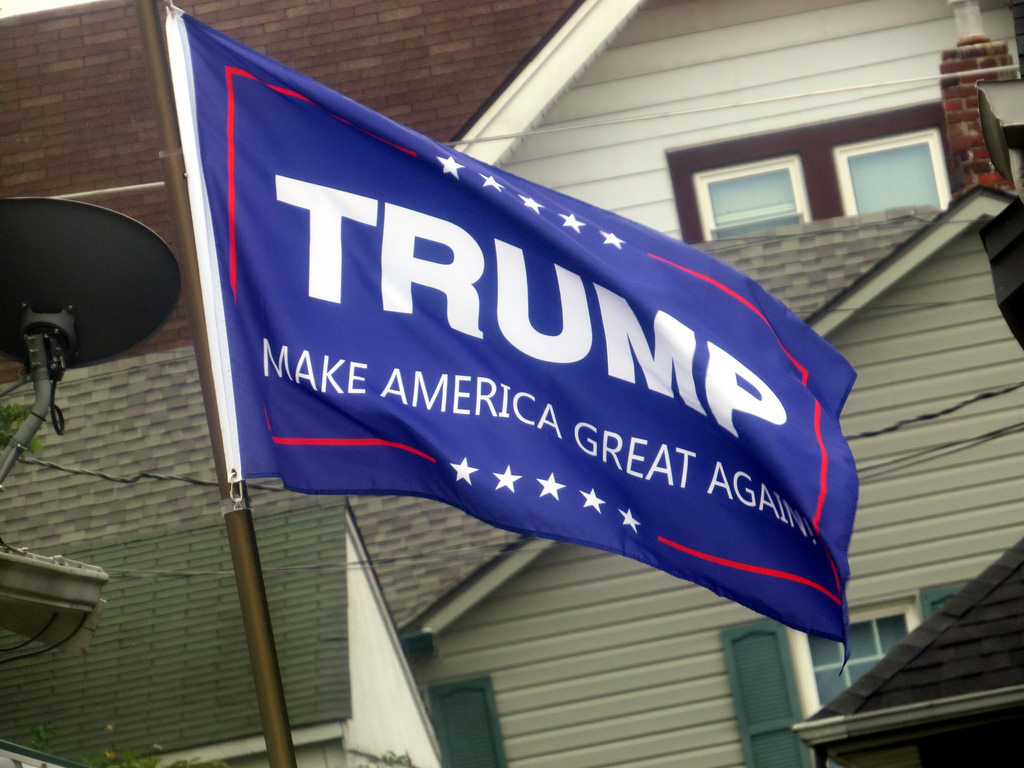The British edition quoted unnamed sources in the United States who are concerned that "the talks are focused almost entirely on President’s demand to reduce the US trade deficit of $ 337 billion in trade with China for goods and services as soon as possible". It is reported that the fears arose after business representatives learned about arrival of the economic adviser to the head of the PRC, who oversees the negotiations on the deal, in the US this week. Donald Trump wrote on his Twitter: "China and the United States work together on trade issues, but past negotiations have often been lopsided and only benefited China. That is why it is so difficult to conclude a deal, from which both sides would win."
Anxiety intensified after last night on his Twitter President Donald Trump said he is ready to work with Chinese President Xi Jinping to find the fastest way to return the Chinese smartphones manufacturer ZTE back to work. Mr. Trump explained his decision by the fact that closure of ZTE in China will eliminate "too much" of jobs, adding that the US Department of Commerce has given a corresponding order to find solution to the situation.
It is noted that among the most pressing issues that American business has long raised when discussing a deal with China are restrictions on foreign ownership of Chinese companies and compliance with intellectual property rights, that is, combating counterfeiting.
"I do not think it will be practical to make a deal quickly," Dwight Morgan, who manages the international operations of a major manufacturer of plastic products, M.Holland, told FT. "It would be preferable if more long-term goals were set during the negotiations."
US Trade Representative Robert Lighthizer said last week that "the list of claims is very long," making it clear that speed in concluding a trade deal with the PRC should not be the main factor.
His position is supported by the head of the US Chamber of Commerce in China. He said that recent meetings with representatives of the administration of the White House gave him reason to believe that the administration would demand from the Chinese something more than just a reduction in the foreign trade deficit. "Certainly, I do not see a quick solution," the official said. "It seems that the parties are going to at least resolve the issue with the entry into force of tariff rates."
source: ft.com
Anxiety intensified after last night on his Twitter President Donald Trump said he is ready to work with Chinese President Xi Jinping to find the fastest way to return the Chinese smartphones manufacturer ZTE back to work. Mr. Trump explained his decision by the fact that closure of ZTE in China will eliminate "too much" of jobs, adding that the US Department of Commerce has given a corresponding order to find solution to the situation.
It is noted that among the most pressing issues that American business has long raised when discussing a deal with China are restrictions on foreign ownership of Chinese companies and compliance with intellectual property rights, that is, combating counterfeiting.
"I do not think it will be practical to make a deal quickly," Dwight Morgan, who manages the international operations of a major manufacturer of plastic products, M.Holland, told FT. "It would be preferable if more long-term goals were set during the negotiations."
US Trade Representative Robert Lighthizer said last week that "the list of claims is very long," making it clear that speed in concluding a trade deal with the PRC should not be the main factor.
His position is supported by the head of the US Chamber of Commerce in China. He said that recent meetings with representatives of the administration of the White House gave him reason to believe that the administration would demand from the Chinese something more than just a reduction in the foreign trade deficit. "Certainly, I do not see a quick solution," the official said. "It seems that the parties are going to at least resolve the issue with the entry into force of tariff rates."
source: ft.com





